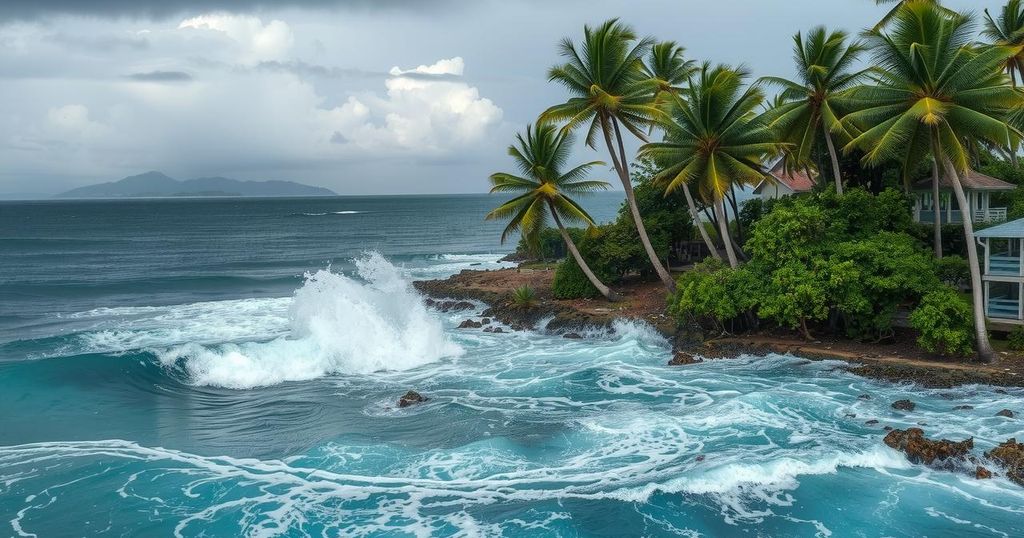A study from Imperial College London links climate change to the intensification of Cyclone Chido, which caused severe destruction in Mayotte. The research indicates that the likelihood of cyclones like Chido has increased by 40% in today’s warmer climate. Classified as a Category 4 storm, Chido was the most damaging cyclone in 90 years for Mayotte, raising concerns regarding casualties and the effects of climate change on storm severity.
Recent research from Imperial College London has established a link between climate change and the intensification of Cyclone Chido, which wreaked havoc on Mayotte, a small archipelago in the Indian Ocean. The study indicates that the cyclone was 40 percent more likely to occur in the warmer climate of 2024 compared to pre-industrial times. Cyclone Chido, classified as a Category 4 storm, has been described as the most destructive cyclone to hit Mayotte in nine decades, causing significant damage to its vulnerable infrastructure and affecting the lives of many residents living in substandard conditions.
The full extent of the devastation remains unknown, though officials express concern that fatalities could eventually number in the thousands. Researchers employed advanced computer modeling to understand the potential influences of global warming on the violent winds and severity of storms like Chido. Their findings suggest that wind speeds near the cyclone’s landfall increased by approximately 4.8 km per second due to climate change. The study emphasizes that climate change elevated the cyclone’s intensity, transitioning it from a Category 3 to a Category 4 storm.
Despite the findings, France’s weather service has not definitively linked Chido’s strength to climate change, indicating that though warmer oceans have contributed to more powerful storms, more conclusive studies are required. Nonetheless, the trajectory of Cyclone Chido considerably affected Mayotte, with reports documenting extensive impacts on both infrastructure and lives. The ongoing climate change crisis, with temperatures now about 1.3 degrees Celsius higher than during the pre-industrial period, continues to foster increasingly severe weather events as warmer air holds more moisture and enhances evaporation, vital for tropical storm formation.
Cyclone Chido’s devastation in Mayotte has emerged as a focal point in the ongoing discourse regarding climate change and its impacts on weather patterns. The cyclone’s magnitude, described as unprecedented in over ninety years, highlights the vulnerabilities of regions susceptible to extreme weather events, particularly where living conditions are precarious. In their analysis, researchers utilized sophisticated simulations to attribute certain characteristics of Cyclone Chido to a changing climate, reinforcing the evidence of global warming’s role in exacerbating storm intensity and frequency. With global temperatures continuing to rise due to human-induced factors, such as fossil fuel combustion, the implications for future tropical storms are concerning.
The evidence presented by scientists from Imperial College London suggests that climate change is significantly influencing the frequency and severity of tropical storms, as demonstrated by Cyclone Chido’s impact on Mayotte. The cyclone’s designation as a Category 4 storm underscores the dangerous consequences of warmer oceans and atmospheric conditions that amplify storm intensity. As global temperatures rise, vigilance and comprehensive strategies become essential to mitigate the effects of extreme weather on vulnerable populations and ensure adequate preparedness for future climatic challenges.
Original Source: www.straitstimes.com







